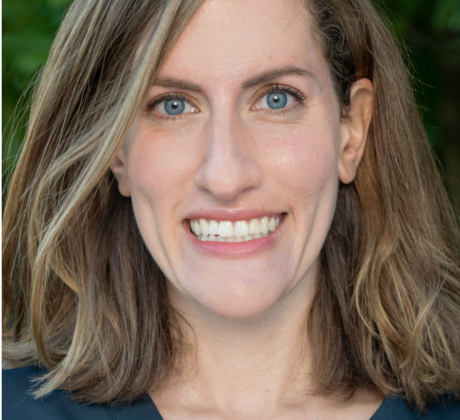Stephanie Ostroff is a speech-language pathologist and journalist. She enjoys blending knowledge from both fields to shine a light on innovators and changemakers in health care.


Kevin Pian, MHCI’21, catalyzes change and collaboration at Mass General, guided by leadership principles he learned in class.
If there’s a common denominator across Kevin Pian’s two-decade career at Massachusetts General Hospital (MGH), it’s the pursuit of progress. But defining and measuring that metric means holding space for every voice in the room.
As Finance Director in the Department of Radiology, Pian performs a balancing act–and he goes beyond the checkbooks. Each day involves a careful reconciliation of priorities: High-quality care and cost efficiency. Academic research and community-based services. Centuries-old traditions and a future that depends on making new ones.
It’s no small undertaking. Pian manages $1.2 billion in Gross Patient Service Revenue and $300 million in annual operating budgets at MGH. Among the Radiology Department’s members are 125 Harvard Medical School faculty and nearly 2,000 employees. Sitting at the helm of the department’s finance team, Pian is responsible for creating and deploying strategies to streamline costs and improve patient experience, working within the 13-hospital Mass General Brigham network.
“How can Mass General simultaneously be the best of the best of quality and be leaders in value?” That’s the crux of the dilemma for Pian. He says this very question led him to enroll in Penn’s online Master of Health Care Innovation (MHCI) degree, seeking new tools to address long-standing challenges.
Faculty + Cohort = Force Multiplier
Pian completed the MHCI in 2021 and credits the program with sharpening his leadership skills, helping him bridge divides across Mass General Brigham to develop solutions that benefit all.
“I’ve been able to extract the best parts of an MBA and MPH and MHA,” he says, noting MHCI professors who are leaders in business, medicine, and law. “The curriculum was put together so well to make the most efficient use of the time.”
I’ve been able to extract the best parts of an MBA and MPH and MHA.
Once Pian began class at Penn, he realized the “strength of the network” extended beyond faculty, resulting in “a force multiplier.” The MHCI “does such a great job in creating a composition of a cohort that is just broad and diverse,” he says. “I think that was just as powerful as the professors, which of course, can’t be understated.”
Voices from across the health care ecosystem colored Pian’s Health Care Leadership course taught by Michael Useem, PhD. For many in attendance the class was a first encounter with formal leadership education.
“It was interesting to hear from a Wharton professor on leadership,” Pian says. Course lessons were amplified by his fellow students, “who are de facto leaders themselves, [sharing] how they would apply it and how their leadership path has gone to date.”
A Leadership Learning Ripple Effect
Useem’s “checklist” approach, which emphasizes developing a personal leadership style, resonated with Pian so much that he designed his own leadership course at MGH grounded in the same principles.
You can create your own checklist on how to be successful–which is almost like a divining rod when things go awry.
“I liked [Useem’s] checklists in particular because it didn’t say ‘You have to be General Patton,’ or ‘You have to be leading from behind,’” Pian explains. “There are different leadership styles. But these are the tried-and-true tactics or styles. You can kind of pick à la carte the elements that you like and create your own checklist on how to be successful–which is almost like a divining rod when things go awry."
At Mass General, Pian’s leadership learning sessions have brought together two small cohorts of colleagues from the Department of Radiology across several months. He’s been able to tailor the course to the challenges his teams face while developing a more diverse pool of leaders–a priority for Pian.
“I’m just spreading the gospel,” he says. “Some of these leadership tactics will resonate and some will not. You pick and choose what resonates with you, and only you can answer that question.”
Listening to Maximize Impact
Near the top of Pian’s own MHCI-inspired leadership checklist: two-way communication. That means listening to understand stakeholders’ perspectives, motivations, and goals–even when they seem at odds with one another.
Leveraging his leadership expertise, Pian has been given the green light on multiple initiatives that optimize resources while breaking down silos within the Department of Radiology. Among his recent accomplishments is the development of a radiology practice with an academic and community arm; marrying the two offsets the expense of academia while leveraging its potential for scale and specialization in the community.
He’s also driving down costs by building an ambulatory strategy that reserves hospital-based imaging for highly complex cases, while routing routine services to community sites. The department’s most recent ambulatory expansion occurred while Pian was completing his MHCI, and he says the degree was instrumental in making it happen.
I’ve become a better health care leader. What I’ve learned through the curriculum, through the professors and my colleagues–I’m just more persuasive because I’m more knowledgeable now.
“[The MHCI] helped me refine my pitch and make my pitches much more effective,” he says. “I think it got us to where we wanted quicker.”
Pian aims to use his influence to promote collaboration between hospitals in the Mass General Brigham network. Historically, these relationships contain an element of rivalry, he says, with some institutions holding steadfast to tradition at the expense of innovation. Now, Pian feels equipped to break down those walls.
“I’ve become a better health care leader. What I’ve learned through the curriculum, through the professors and my colleagues–I’m just more persuasive because I’m more knowledgeable now,” he says. “I’ve got a much deeper tool kit and that makes me more efficient and ultimately more effective.”
March 2023 Update: Pian has moved into a new role as Enterprise Radiology Senior Finance Director at Mass General Brigham.

